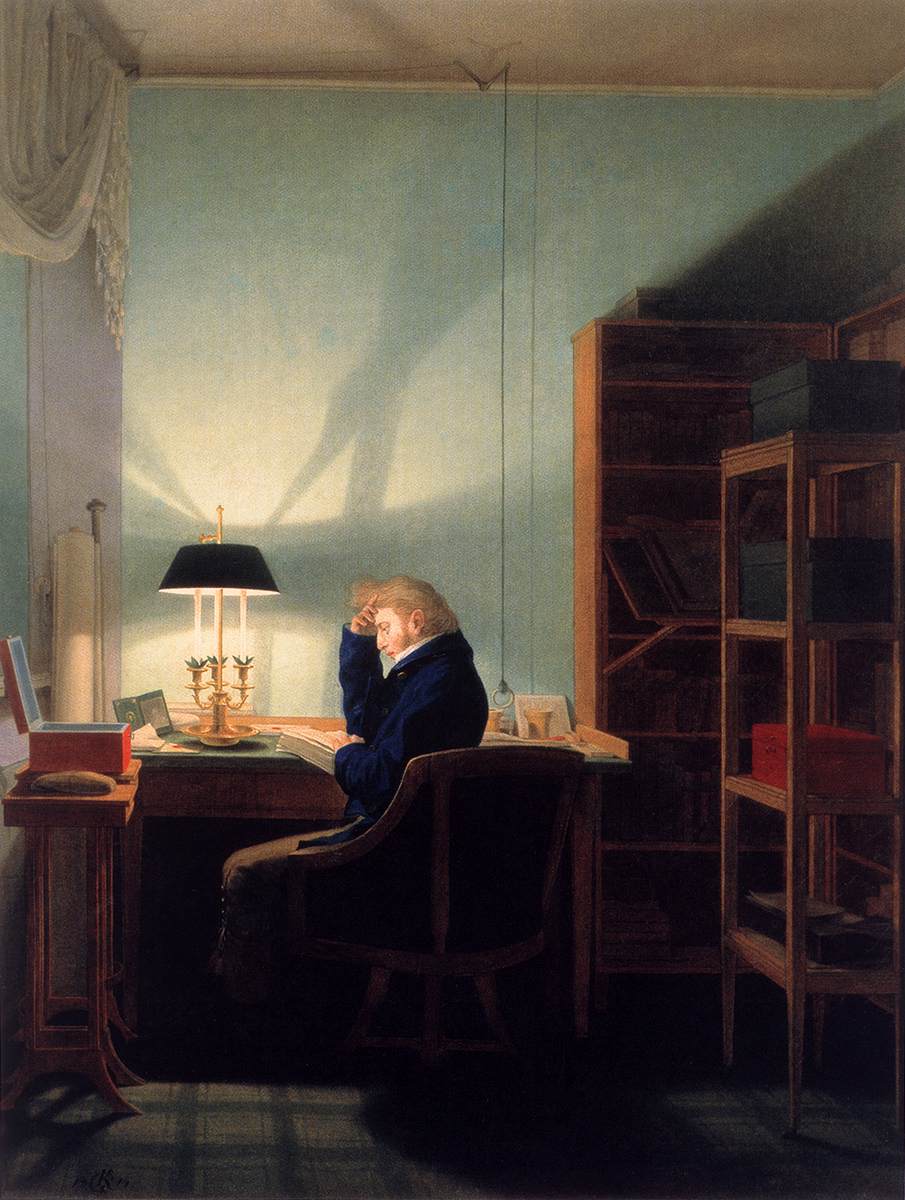Self-Knowledge • Behaviours
On Getting an Early Night
To a surprising, and almost humiliating extent, some of the gravest problems we face during a day can be traced back to a brutally simple fact: that we have not had enough sleep the night before.

The idea sounds profoundly offensive. There are surely greater issues than tiredness. We are likely to be up against genuine hurdles: the economic situation, politics, problems at work, tensions in our relationship, the family…
These are true difficulties. But what we often fail to appreciate is the extent to which our ability to confront them with courage and resilience is dependent on a range of distinctly ‘small’ or ‘low’ factors: what our blood sugar level is like, when we last had a proper hug from someone, how much water we’ve drunk – and how many hours we’ve rested.
We tend to resist such analyses of our troubles. It can feel like an insult to our rational, adult dignity to think that our sense of gloom might in the end stem, centrally, from exhaustion. We’d sooner identify ourselves as up against an existential or socio-cultural crisis than see ourselves as sleep-deprived.
Yet we should be careful of under- but also of over-intellectualising. To be happy, we require large serious things (money, freedom, love), but we need a lot of semi-insultingly little things too (a good diet, hugs, rest).
Anyone who has ever looked after babies knows this well. When life becomes too much for them, it is almost always because they are tired, thirsty or hungry. With this in mind, it should be no insult to insist that we never adopt a truly tragic stance until we have first investigated whether we need to have an orange juice or lie down for a while.

Probably as a hangover from childhood, ‘staying up late’ feels a little glamorous and even exciting; late at night is when (in theory) the most fascinating things happen. But in a wiser culture than our own, some of the most revered people in the land would – on a regular basis – be shown taking to bed early. There’d be competitions highlighting sensible bedtimes. We’d be reminded of the pleasures of being in bed when the last of the evening light still lingers in the sky. Our problems would not thereby disappear, but our strength to confront them would at points critically increase.


























